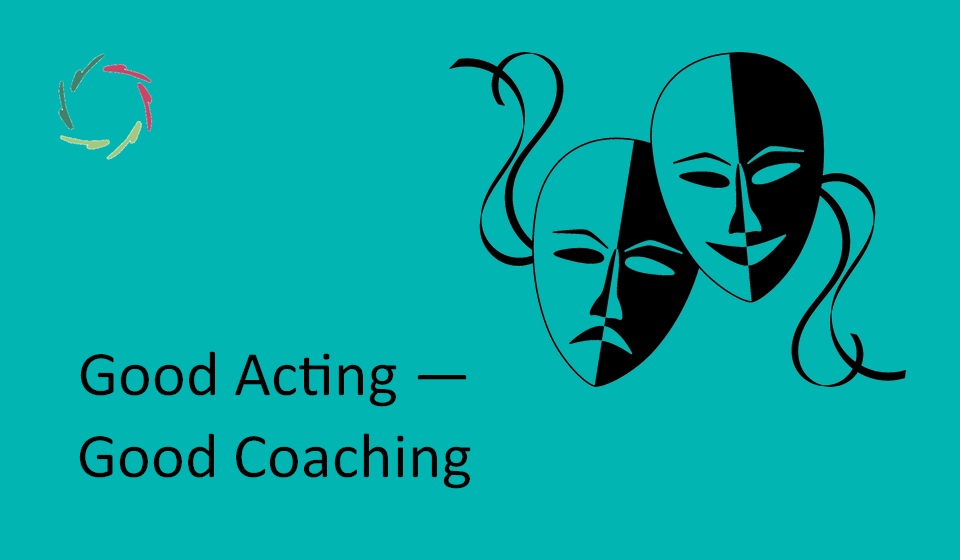Good Acting ― Good Coaching

A good actor goes deep. A good coach goes deep. Both know what depth is about and can leverage it to the advantage of others.
Coaching is not acting at the surface level.
This means there is no pretension involved — only the real thing. A good coach is not a purveyor of instruments to be used during his coaching. He is the good instrument. He is the good coaching.
Seen from the deeper self, he is the channel. Seen from the total self, that’s what he is and brings at play during the coaching.
Like a good actor
The excellent actor plays his role so well that he becomes his role. That way, he plays himself so well that he becomes himself more than ever through the acting. It makes him grow.
The audience sees this and enjoys the ‘magical’ performance. Indeed, that term gets used in descriptions of brilliant acting.
Not alone
The good actor also plays his role well toward other actors and the public, incorporating their feedback. He’s not alone on stage but in a deeper union with others.
Likewise, the good coach is in a deeper union with the coachee. This is what the coachee feels as empathy/Compassion ― one of the most essential elements in the coaching.
Therefore, good acting is ‘therapeutic.’
Especially when the audience gets immersed in the play, good acting leads to the feeling that something essential has happened toward the end. The audience comes out of the theatre in a different shape than at the entrance.
Anyway, that should be the goal each time again when people go to a performance considered as art. It is the responsibility of the artist(s), the public, and, of course, the author/director.
Therefore, is good coaching like a theatre play?
Indeed ― a very good one. A coach may see it this way.
That also explains why instrumental coaching does not lead to a heightening of the coach’s performance. He may learn to use more instruments, but that is not what the coaching is about. It’s really about mental growth on both sides.
This is also why a good coach can improve with time and experience. However, what is called upon to accomplish this is his willingness to change. At the end of each performance, he should come out in a different shape than at the entrance.
That may seem exhausting.
Actually, it’s rejuvenating.
Good coaching doesn’t need to drain the coach’s energy. If, as a coach, you find the coaching tiring, you may use some support. There is no need to see what you are doing as putting pressure on you. There is not even a large audience before you.
There’s the coachee who wants you to succeed. If the coachee doesn’t want that, there is an additional reason, one way or another, for your coaching, not for your getting drained.
Just don’t let it happen. It’s not worth it. Eventually, it will probably not even help the coachee ― only possibly lift him before sinking back into prior suffering, if not with a vengeance.
Coach, coach yourself.
You’re a bucket. Fill this bucket. Being present with the coachee is an excellent pretext for doing so while getting paid.
Then you can overflow and let many people enjoy you as their instrument.
The world is a stage upon which we’re all actors.
Let’s care for each other.


